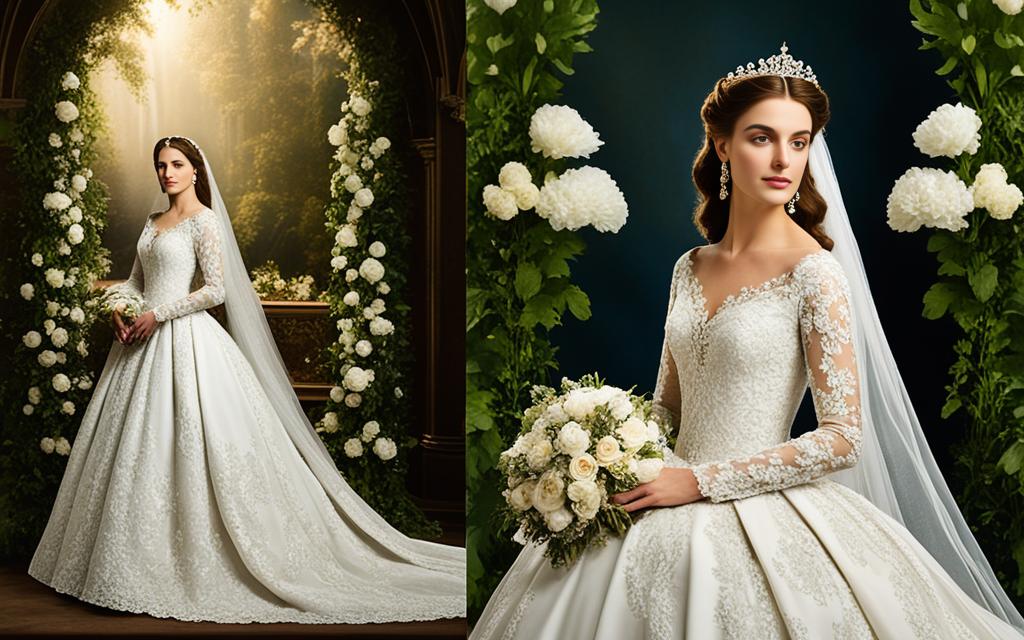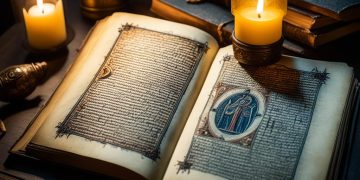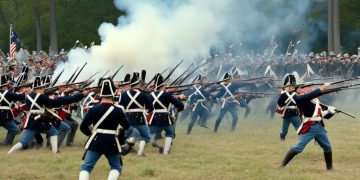If you’re fascinated by the captivating stories of royal figures from the past, then you’ll be enthralled by the life of Isabella of Valois. As a French princess who became the Queen of England in the late 14th century, Isabella’s journey is one that encompasses the turbulent political landscape of her era, marked by the ongoing conflicts between France and England known as the Hundred Years’ War.
Born in 1389, Isabella was the daughter of King Charles VI of France and Isabeau of Bavaria. As a member of the powerful House of Valois, her early life was shaped by the privileges and responsibilities that came with her royal lineage. Growing up in the splendor of the French court, Isabella received a comprehensive education befitting a future queen.
Early Life and Upbringing
Born in 1389, Isabella of Valois was the daughter of King Charles VI of France and Isabeau of Bavaria. As a member of the powerful House of Valois, Isabella’s early life was marked by the privileges and responsibilities that came with her royal lineage. She was raised in the splendor of the French court, where she received a comprehensive education befitting a future queen.
Growing up, Isabella valois was immersed in the rich cultural and intellectual traditions of the French court. Her parents, King Charles VI and Isabeau of Bavaria, ensured that she received the finest education available, including instruction in languages, literature, music, and the arts. This comprehensive upbringing would serve Isabella of valois well as she navigated the complexities of royal life in the years to come.
As a child, Isabella of valois was deeply influenced by the political turmoil that plagued her native France during the Hundred Years’ War. The ongoing conflict between France and England would ultimately shape the course of her life, leading to her betrothal and marriage to the English King Richard II when she was just seven years old.
| Key Events in Isabella of Valois’ Early Life | Year |
|---|---|
| Birth of Isabella of Valois | 1389 |
| Betrothal to King Richard II of England | 1396 |
| Marriage to King Richard II of England | 1396 |
| Arrival in England as Queen | 1397 |
Throughout her childhood and upbringing, Isabella of valois was shaped by the unique circumstances of her royal lineage and the political realities of her era. Her journey from a French princess to the Queen of England would be a pivotal chapter in the history of the Hundred Years’ War and the lives of the individuals involved.
Marriage to Richard II of England
In 1396, when isabella of valois was just seven years old, she was betrothed to the English King, richard ii. This marriage was part of a political alliance between isabella valois‘ home country of France and England, which had been locked in the Hundred Years’ War for decades. The isabella of valois wedding to the 29-year-old richard ii took place later that year, when isabella valois was only eight years old.
This isabella of valois marriage to the King of England was seen as a way to broker peace between the two nations. As isabella valois queen of england, she would play a crucial role in the political landscape of the late 14th century, using her position to forge alliances and advocate for peace.
The union of isabella of valois and richard ii was a strategic move, but it also marked the beginning of a complex and sometimes turbulent relationship between the young queen and her much older husband. Despite their differences in age and experience, the two would navigate the challenges of royal life together in the years to come.
Isabella of Valois: Queen of England
As the Queen of England, Isabella of Valois played a crucial role in the political landscape of the late 14th century. With her regal position, she used her influence to forge alliances and advocate for peace between England and France, a goal that was particularly important given the ongoing Hundred Years’ War.
During her reign as Queen, Isabella quickly became a prominent figure in the English court, where she leveraged her diplomatic skills to navigate the complex relationships between the two nations. Her efforts to promote peaceful coexistence between England and France were widely recognized and respected, earning her the admiration of both her subjects and her political contemporaries.
Despite the turbulent times, Isabella’s royal life was marked by a deep commitment to her duties and a genuine desire to make a positive impact on the lives of the people she served. She used her position to support charitable causes, advocate for the well-being of her subjects, and foster a sense of unity and stability within the English kingdom.
Through her unwavering dedication and diplomatic acumen, Isabella of Valois left an indelible mark on the history of England, cementing her legacy as a remarkable queen who sought to bring peace and prosperity to her adopted homeland.
The Tragic Tale of Richard II’s Downfall
The idyllic nature of Isabella of Valois’ reign as Queen of England came to a tragic end in 1399, when her husband, Richard II, was deposed by his cousin, Henry Bolingbroke, who became King Henry IV. This event marked the downfall of Richard II and had a profound impact on Isabella of Valois and the course of her life.
As the Queen of England, Isabella of Valois had witnessed the turmoil and political instability that had plagued her husband’s reign. The tensions between Richard II and his nobles had been brewing for years, and the final showdown came when the king was forced to abdicate in the face of mounting opposition.
The deposition of Richard II was a traumatic event for Isabella of Valois, who had been devoted to her husband and his cause. Forced to watch as her beloved partner was stripped of his power and authority, the young queen must have been left reeling, unsure of her own future and the fate that awaited her in the new regime led by King Henry IV.
The downfall of Richard II and the subsequent rise of Henry Bolingbroke as the new king of England marked a turning point in the life of Isabella of Valois. No longer the Queen of England, she was forced to return to her native France, where she spent the remainder of her days grappling with the aftermath of the tragic events that unfolded during the final years of Richard II’s reign.
Isabella’s Life After Richard II
After the tragic deposition of her husband, Richard II, Isabella of Valois returned to her native France, where she spent the remainder of her life in relative seclusion. The young queen, who had been just a child when she married the English king, was deeply affected by the tumultuous events that unfolded during the final years of Richard’s reign.
In France, Isabella of Valois sought solace in her faith, dedicating herself to a more religious life. She withdrew from the public eye, preferring to live a quieter existence away from the political turmoil that had marked her time as Queen of England. This period of Isabella’s later life was a stark contrast to the splendor and responsibilities she had experienced during her brief but eventful tenure as the English monarch’s wife.
Despite the challenges she faced, Isabella of Valois remained a resilient figure, drawing strength from her strong familial ties and her deep devotion to her Catholic faith. She lived out the remainder of her days in France, passing away in 1409 at the young age of just 19, never having the chance to fully reconcile the trauma of her life after Richard II.
Legacy and Historical Impact
Though her reign as Queen of England was relatively short-lived, Isabella of Valois left a lasting impact on the historical and cultural landscape of her era. Her marriage to Richard II, as well as the tragic circumstances surrounding his downfall, have made her a figure of enduring fascination for historians and literary scholars alike.
Isabella of Valois‘ legacy can be seen in the way her story has captured the imagination of generations, inspiring numerous works of art, literature, and drama. From Shakespeare’s play “Richard II” to modern historical novels, Isabella’s life and the events that unfolded during her time as Queen of England have continued to captivate audiences, shedding light on the complex political and social dynamics of the late 14th century.
The historical impact of Isabella of Valois extends beyond her personal story, as her marriage to Richard II played a significant role in shaping the geopolitical landscape of her era. The alliance between France and England, forged through this union, sought to bring an end to the Hundred Years’ War, a conflict that had raged for decades. While the ultimate resolution of this conflict would elude Isabella and her husband, her efforts to promote peace between the two nations have been recognized as important steps towards eventual reconciliation.
The influence of Isabella of Valois can also be seen in the ways her story has been interpreted and reimagined over time. From historical accounts to literary depictions, her life has been the subject of ongoing scholarly and artistic exploration, shedding light on the importance of understanding the lived experiences of women in positions of power during the Middle Ages.
Ultimately, the significance of Isabella of Valois lies in her enduring legacy as a figure who embodied the complexities and challenges faced by women in positions of power during a turbulent period in history. Her story continues to captivate and inspire, serving as a testament to the resilience and impact of historical figures who have often been overlooked or marginalized.
Conclusion
As you’ve explored the captivating life of Isabella of Valois, Queen of England in the late 14th century, you’ve seen how her story encompasses the tumultuous political climate of her era, the complexities of royal marriages, and the enduring human spirit in the face of adversity. Isabella’s journey, from her privileged upbringing in the French court to her role as a young queen navigating the treacherous waters of English politics, is a testament to the resilience and adaptability of the human spirit.
Through Isabella’s final thoughts and the key takeaways of her life, we gain a deeper understanding of the legacy she left behind. Her efforts to forge alliances and advocate for peace between England and France, even in the midst of the Hundred Years’ War, demonstrate the power of diplomacy and the pursuit of a greater good. Ultimately, Isabella of Valois remains a captivating figure in history, whose story continues to inspire and enlighten us.
As you reflect on the summary of Isabella’s life, you’re reminded of the enduring impact that individuals can have, even in the face of great adversity. Her conclusion serves as a reminder that the choices we make and the actions we take can shape not only our own lives but the course of history itself.







